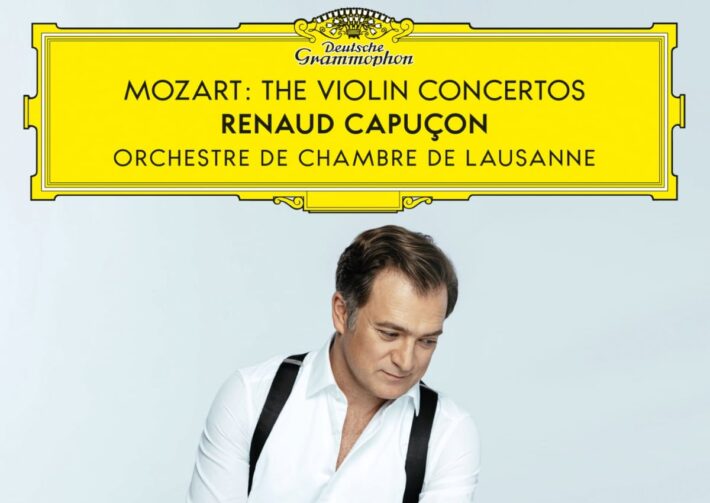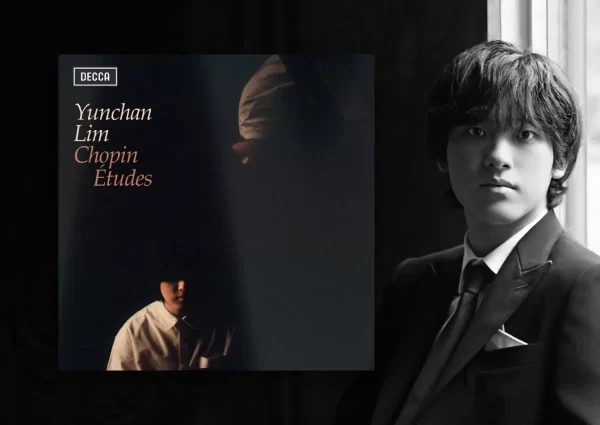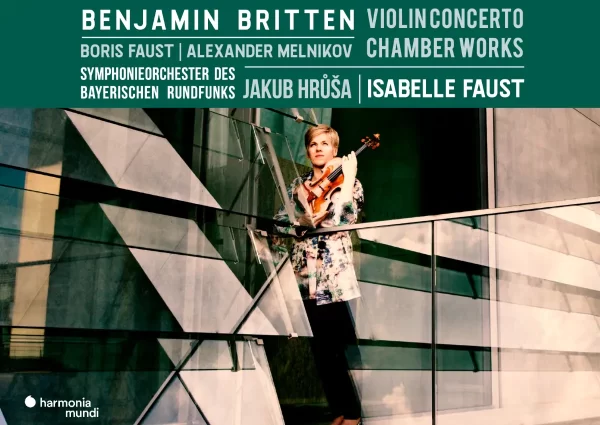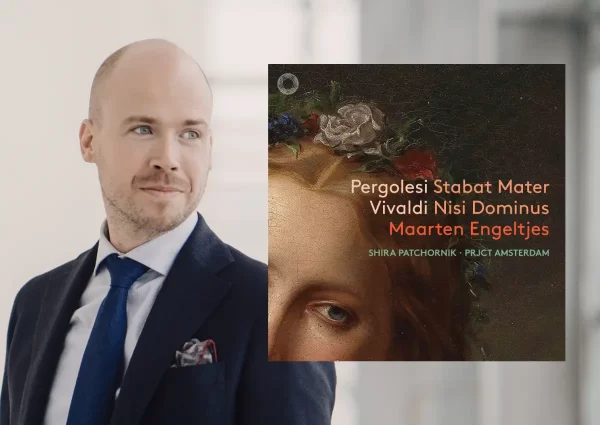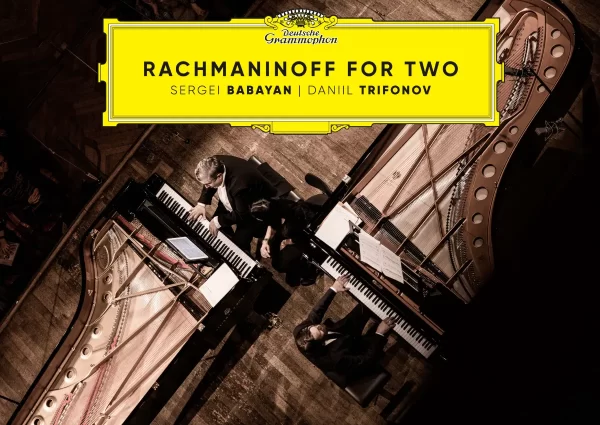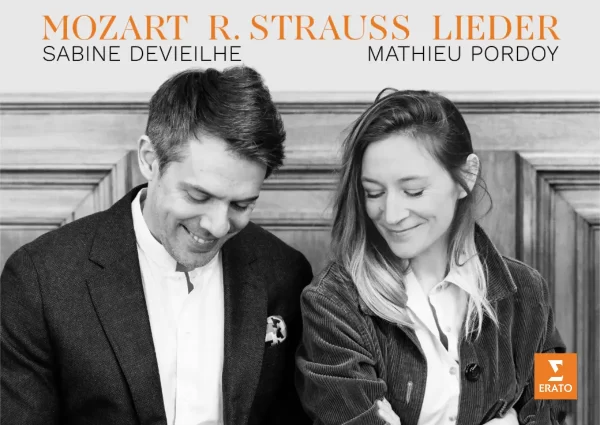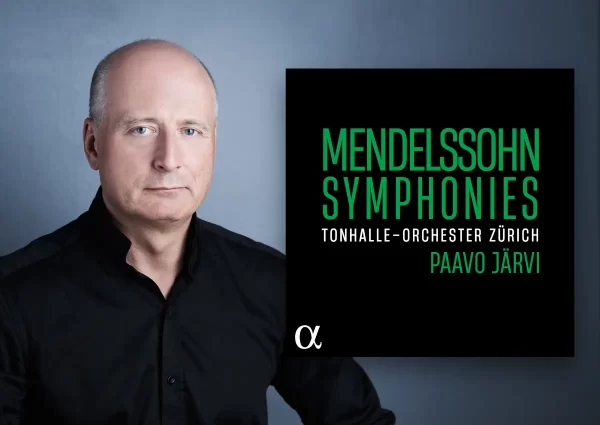This is the third release by these forces. The previous albums featured impressive performances of Violin Concertos by Saint-George, Vivaldi’s ‘Four Season’ and works by Avro Pärt. This new album includes all five concertos, plus the Adagio in C and Rondo in E. The Adagio was written at the request of violinist Antonio Brunetti, who felt the fifth concerto’s slow movement was ‘too academic.’ Years later, Brunetti requested the Rondo in C to replace the final movement of another composer’s concerto.
Capuçon has served as Artistic Director of Orchestre de Chambre de Lausanne since 2021, and their recordings reveal a clear chemistry and unified artistic approach. Orchestral accompaniments are nicely characterized, utilizing a historically appropriate approach of minimal vibrato, forwardly placed winds (featuring fabulous horns), and brisk tempos. The orchestra’s clarity of articulation and texture is a consistent highlight. Renaud Capuçon plays beautifully, as one would expect; his tone is warm and inviting. Articulation is spotless, with plenty of rhythmic energy. The fourth and fifth concertos, which have the most difficult solo writing, are played with an effortless grace.
Yet the reader might be sensing a ‘but’ and that is indeed the case. Despite the overall excellence of these readings, there is a sameness of approach, a ‘one size fits all’ approach that left me impressed but unmoved. And DG’s spotlighting of Capuçon only intensifies the issue.
One cannot argue against the technical excellence heard here, and perhaps if this were the only recording I knew, my reaction would be more favorable. My current favorites are Francesco Dego (Royal Scottish National Orchestra/Norrington/Chandos); Julia Fischer (Netherlands Chamber Orchestra/Kreizberg/Pentatone); and, on period instruments, Isabelle Faust (Il Giardino Armonico/Giovanni Antonini/Harmonia Mundi). What sets each of these performers apart is how equally their technical polish is balanced with imaginative, emotional playing. I find a far greater variety of weight and tone from each of them, as well as orchestral accompaniments offering fuller and more varied character.
Related Posts
- Review: Beethoven, Schumann, Franck – Violin Sonatas – Capuçon, Argerich
- Review: Yuja Wang, Gautier Capuçon, Andreas Ottensamer – Works by Rachmaninoff & Brahms
- Double Review: Mozart Requiem – Savall, Chauvin
Differences are apparent even in the first movement’s opening ritornello of Concerto No. 1 – the Lucerne playing is spick and span clean, with plenty of pep, but a bit generalized. The Netherland performance is roughly 10 seconds slower yet has far greater fire and drive. Norrington and Dego are slower, but both use the extra time to unearth more colors, in part by using a greater number of bow strokes and articulations. In the slow movement that follows, all three of these players vary the weight and color of their tone, invoking more moods and emotions than Capuçon’s beautifully sung, full-toned lyricism.
In the G major concerto’s opening movement Dego is coquettish and more playful than Capuçon (and I love how Norrington’s oboes seize the limelight). Again, Kreizberg is slower than Capuçon, but there is an urgency and seriousness of purpose that gives the music a more imposing quality – Capuçon is overly frothy by comparison. The outer movements of the fifth concerto have plenty of energy, complimented by a sweetly lyrical slow movement. Yet the Turkish music in the final movement is not raucous enough; I miss the more vivid characterization heard in the Faust/Antonini and Fischer/Kreizberg performances (Dego/Norrington are also disappointingly polite in this passage).
Cadenzas are different with each performer: Fischer uses her own – they are perhaps a bit flashier than the norm, though always within the bounds of classical tradition. Faust plays cadenzas written by pianist Andreas Staier, with whom she frequently collaborates. Capuçon’s are by Robert Levin, who has completed several of Mozart’s unfinished works, including the Requiem. Dego plays cadenzas by Franco Gulli, one of the most prominent Italian violinists of the late twentieth century.
Fans of Capuçon will need no recommendation from me to acquire this album, and first timers are unlikely to be disappointed. Despite the distinguished playing offered here, my prime recommendations remain the same.

Mozart – The Violin Concertos
Renaud Capuçon – Violin
Orchestre de Chambre de Lausanne
Deutsche Grammophon, CD 4864067
Recommended Comparisons
Dego | Fischer | Faust | Stern
Read more classical music reviews or visit The Classic Review Amazon store
Follow Us and Comment:
Get our periodic classical music newsletter with our recent reviews, news and beginners guides.
We respect your privacy.

